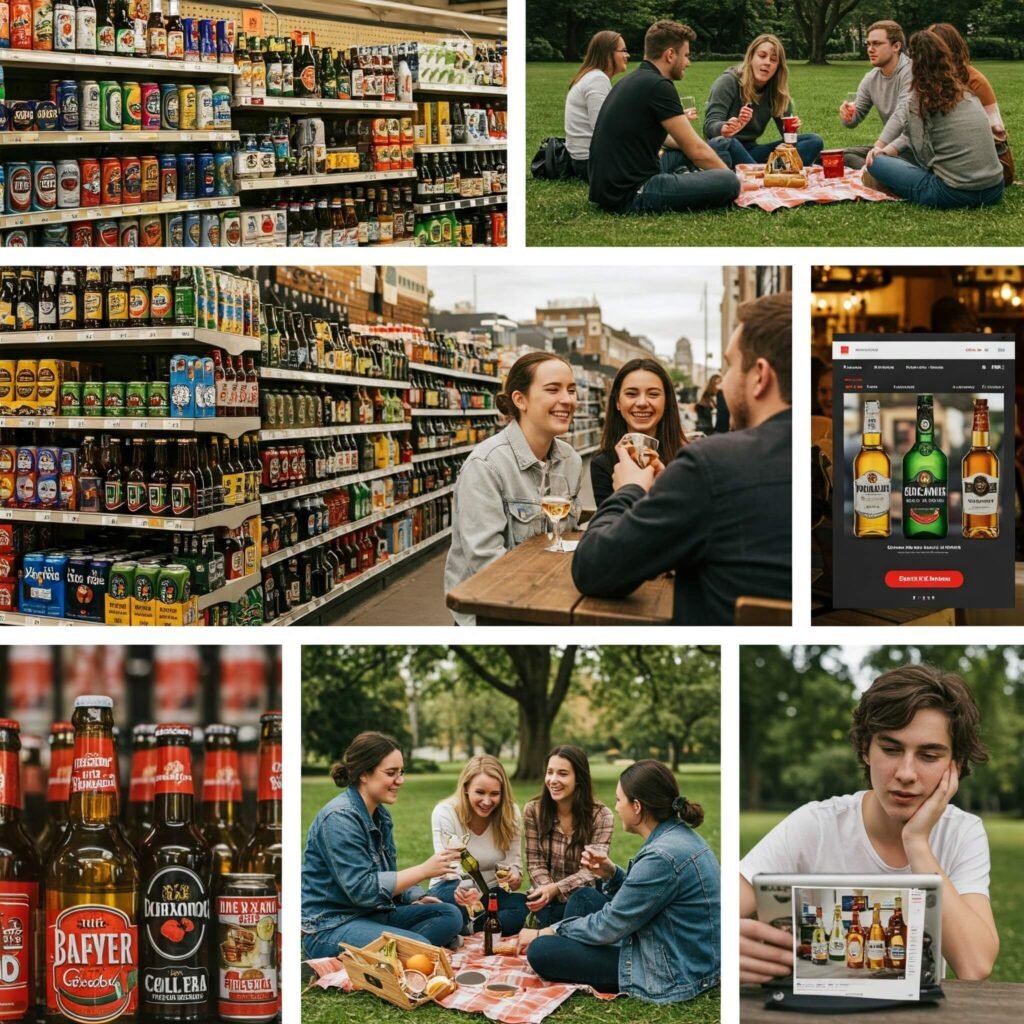Alcohol laws by state are a total maze, and I’m sitting here in my cluttered Denver apartment, sipping a craft beer I think is legal to have on my porch, but who knows? The U.S. booze scene is wild, with every state having its own quirky rules, and I’ve tripped over them more than once. Last month, I was road-tripping through Tennessee, the air thick with barbecue smoke and summer heat, and I got a side-eye for trying to buy wine on a Sunday—apparently, that’s a no-go in some spots. I’m no lawyer, but I’ve learned the hard way what’s legal where, usually by making dumb mistakes. Here’s my messy, honest take on navigating alcohol laws by state, straight from a guy who’s definitely fumbled this.
Why Alcohol Laws by State Are Confusing AF
I’m no expert, but alcohol laws by state are like a puzzle designed to mess with you. I moved to Colorado last year, all excited for craft breweries, only to find out open container laws are super strict here. I was at a park in Boulder, sipping a beer, and got a lecture from a cop—felt like a total rookie. Nolo says each state’s got its own rules on buying, drinking, and carrying booze, and it’s a lot. I’m still the guy who forgets you can’t just walk around with a drink, but I’m learning, kinda.
The Weirdest State Alcohol Laws I’ve Run Into
Here’s some stuff I’ve learned about alcohol laws by state:
- Sunday sales bans: Some states, like Tennessee, still block liquor sales on Sundays. I tried buying whiskey once and got shut down—embarrassing.
- Dry counties exist: Parts of Kentucky (ironic, right?) are totally dry. I brought a six-pack to a barbecue there and felt like a criminal.
- Age rules vary: Most states say 21 for buying, but some let 19-year-olds serve alcohol. I got carded at 30 and sulked.
I’m a mess—thought I could sneak a beer into a park once and almost got fined. Never again, maybe.

Open Container Laws and My Dumb Mistakes
Open container laws are a big part of alcohol laws by state, and I’ve screwed this up big time. I was in New Orleans last spring, vibing on Bourbon Street with a hurricane in a plastic cup—legal there, felt like a party. Then I tried the same thing in Texas, walking around Austin with a beer, and got a warning from a cop. FindLaw says open container laws vary wildly—some states are chill, others are strict AF. I’m still learning, but I spilled half that hurricane on my shoes trying to dance, so there’s that.
What I’ve Learned About Open Container Laws
Here’s the deal with open container laws:
- Some states are lax: Louisiana lets you stroll with a drink in certain spots. NOLA was a blast, but I overdid it.
- Others are tight: Texas and Colorado will slap you with fines for open containers in public. Learned that the hard way.
- Cars are a no-go: Most states ban open booze in vehicles. I left a beer in my cupholder once—dumb move, got a lecture.
I’m not smooth—thought I could “casually” carry a cocktail in Denver and got called out. Live and learn.egas) have specific zones where it’s allowed.

Buying Booze and State Restrictions
Buying alcohol is where alcohol laws by state get real tricky, and I’ve fumbled this too. In Utah, I went to a liquor store thinking I could grab a bottle of vodka, but they’ve got state-run stores with weird hours and limits. Felt like I was in a dystopian novel, the air all sterile and fluorescent. Alcohol Policy Information System says states like Utah and Pennsylvania control liquor sales tightly. I’m still the guy who forgets to check store hours and shows up too late.
Tips for Navigating Booze-Buying Laws
Here’s what I’ve figured out:
- Check state rules: Some places only sell liquor in state stores. Utah taught me to plan ahead.
- Hours matter: States like Indiana ban alcohol sales after certain times. I showed up at 9 p.m. once and left empty-handed.
- ID always: Most states card hard for 21. I got asked for ID last week and felt flattered but annoyed.
I’m a disaster—bought a bottle of wine in Oregon, forgot it in my car, and it cooked in the heat. RIP my Pinot.
Dry Counties and Other Weirdness
Dry counties are the wildest part of alcohol laws by state, and I’ve been caught off guard. Was in Arkansas for a wedding, expecting to toast with champagne, but the county was dry—straight-up no alcohol sales. Felt like I time-traveled to the 1920s, with dusty roads and church bells in the air. VinePair says dry counties are still a thing in places like Kentucky and Arkansas. I tried sneaking a flask and felt like a total rebel, but also super guilty.
Surviving Dry Counties and Other Restrictions
Here’s what I’ve learned:
- Research ahead: Check if your spot’s dry. I didn’t, and the wedding was awkwardly sober.
- Workarounds exist: Some dry areas allow private clubs to serve. Found one, but it was sketchy.
- Respect the rules: I’m not saying I’m perfect, but sneaking booze feels riskier than it’s worth.
I’m still learning—thought I could “borrow” a beer from a friend in a dry county and got caught. Not my finest hour.. The US is a melting pot of cultures, and apparently, also a melting pot of alcohol rules.

Wrapping Up My Take on Alcohol Laws by State
So, here I am, chilling on my couch with a probably-legal beer, thinking alcohol laws by state are a wild ride. I’ve made dumb moves, spilled drinks, and learned a ton, but I’m still figuring it out. Every state’s got its own vibe, from NOLA’s open-container party to Utah’s strict stores. Check your local laws before you sip, and maybe don’t be like me, spilling everywhere. Got your own booze-law stories? Drop ‘em in the comments—I’m all ears.









































